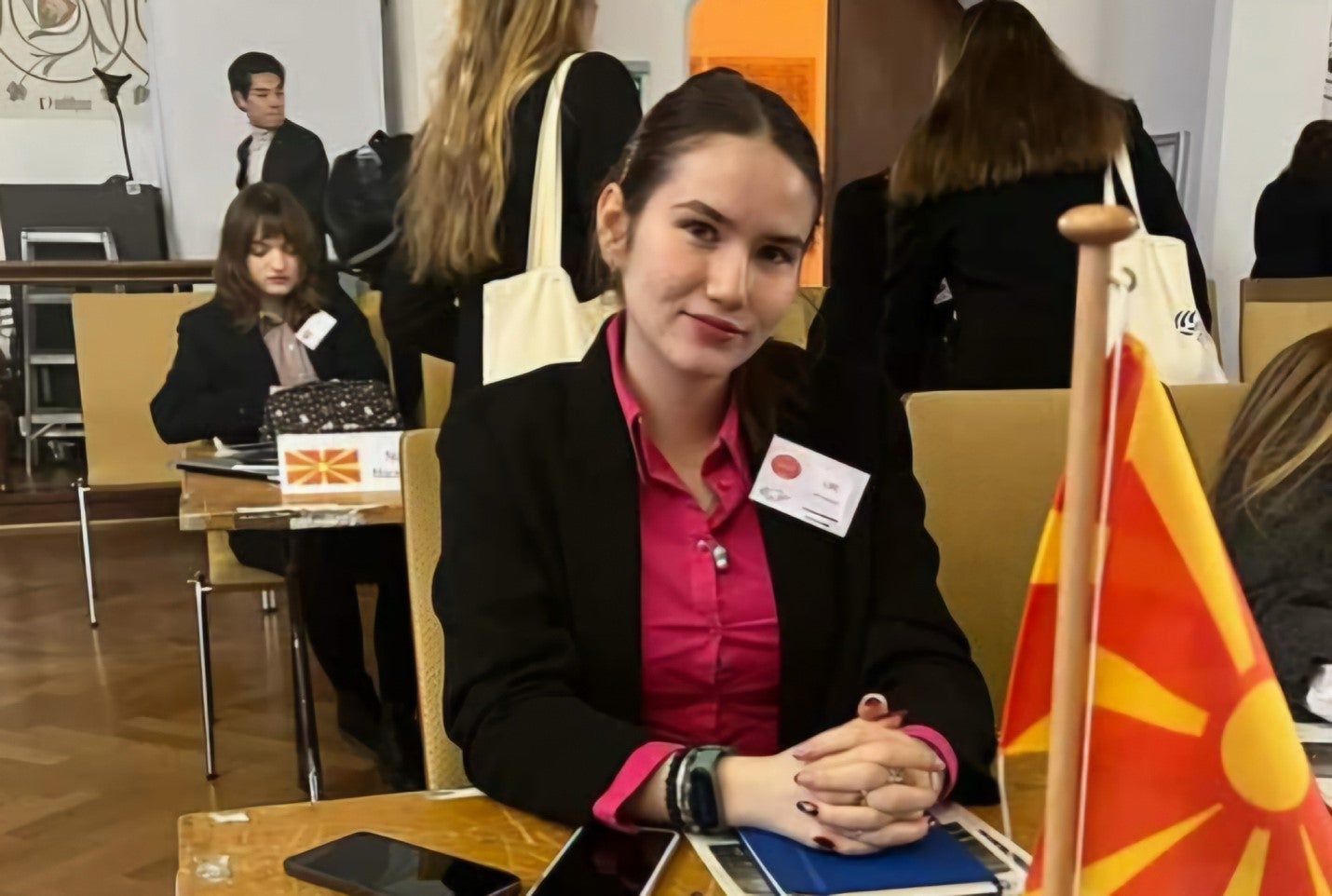Beijing+30 Youth Blog: Missed opportunities, dreams put on hold, and lost dignity: The hidden cost of menstrual poverty
Date:

As we reflect on the principles of the Beijing Declaration and Platform for Action and assess our progress towards gender equality, it becomes clear that menstrual health is more than a personal issue – it is a critical matter of poverty, health, and education. Yet, when I think about gender equality, I can’t help but start with my own home, North Macedonia, where the struggles of menstrual poverty are deeply personal and call for urgent systemic change.
Menstrual poverty was first brought into public discussion in North Macedonia in 2018, when the first research on the issue was published. The findings were alarming: 15 percent of women reported not using hygiene products, instead relying on self-made textile pads or even paper. Even more alarming, 30 percent of women could not afford the menstrual products they needed, forcing many to stay home from work or school.
For me, these are not just statistics. They represent my neighbors, my classmates, and members of my community. The harsh reality is that 90 percent of students in rural areas of North Macedonia miss four to five days of school every month due to their periods, while 75 percent of students in urban areas are absent for two to three days per cycle.
Think of the missed opportunities, the dreams put on hold, and the dignity stripped away simply because of something as natural as menstruation. This is a direct consequence of inadequate conditions for managing menstrual hygiene in schools and workplaces, combined with the high cost of menstrual products. When girls miss school due to a lack of proper facilities or the inability to manage their periods discreetly, they fall behind in their studies and face fewer educational opportunities compared to their male peers. Likewise, women in the workforce struggle to maintain their productivity and dignity without access to proper menstrual hygiene products, affecting their professional growth and economic independence.
Another aspect of menstrual poverty is the persistent taboo surrounding menstruation in many parts of the world. However, in our Balkan culture, this is even more amplified, as menstruation remains shrouded in silence and shame. Particularly in North Macedonia, the absence of formal sexual education in schools creates a gap in age-appropriate knowledge about menstrual health. This lack of education perpetuates misconceptions, fuels misinformation, and exacerbates stigma. Our society continuously instills the notion that menstrual stains, products, or even menstruation itself is shameful, effectively silencing women.
So, what now? To effectively address menstrual poverty and achieve menstrual equity, we must tackle its root causes. Poverty, cultural taboos, inadequate government responses, and improper infrastructure create a hostile environment for women. To change this, governments, policymakers, civil society, and citizens must work together to implement comprehensive solutions that prioritize women’s well-being. Ensuring access to affordable and sustainable menstrual products, improving sanitary conditions in schools and workplaces, and promoting menstrual health education are just the beginning. We must continue amplifying the voices of women advocating for their rights and pushing for policies that prioritize menstrual health.
As a young woman from North Macedonia who has witnessed the impact of menstrual poverty firsthand, I cannot stay silent. Every time I notice a girl is missing from school, I wonder whether it is because of the inadequate menstrual facilities. Every day, I am reminded that gender equality cannot succeed if we continue to ignore this basic human right. This isn't just about access to menstrual products – it's about dignity, education, and the future of women in my country and beyond. We must transform our personal discomfort into collective action and fight for change!
Biography: Teodora Risteska Daskalovski is an 18-year-old advocate for gender equality and women's rights from North Macedonia. She serves as one of the 12 Adolescent Girls Advisory Council advisors for the Global Fund for Women, contributing to key strategic decisions on redistributing funds and resources through the Adolescent Girls’ Rights program. In addition to her advocacy work, Teodora is an accomplished writer, having published her novel “The Butterfly Murders” in both Macedonian and English, with the book now available on more than three continents.
Contact Information:
Email: risteskadaskalovski@gmail.com
Social Media:
Instagram
Facebook